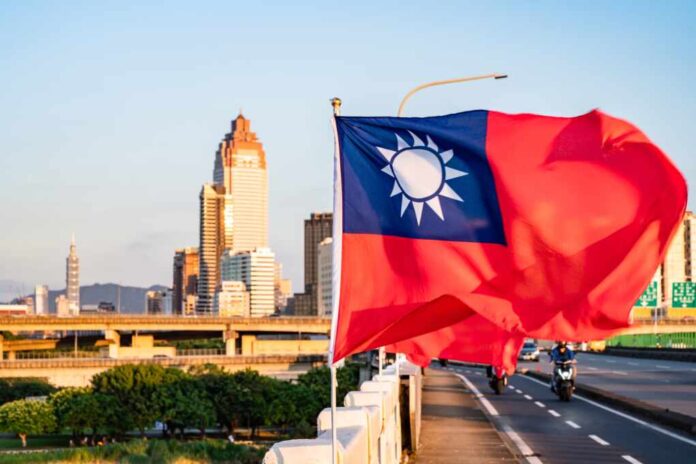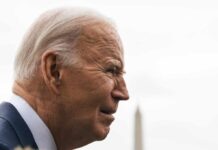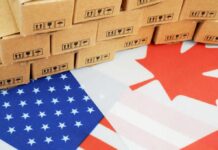
Taiwan proposes a vehicle excise tax reduction while simultaneously grappling with new U.S. tariffs that could force its auto parts manufacturers to relocate production.
At a Glance
- Taiwan’s Ministry of Economic Affairs has proposed lowering vehicle excise taxes to reduce prices and stimulate consumer demand
- Simultaneously, Taiwanese auto parts suppliers face a new 25% tariff on foreign-made auto parts imposed by President Trump
- Companies like Tong Yang Group are considering expanding U.S. production despite higher operating costs
- The Taiwan Transportation Vehicle Manufacturers Association warns of negative impacts on both Taiwanese suppliers and U.S. consumers
Taiwan Seeks to Boost Domestic Auto Market Through Tax Cuts
Taiwan’s Ministry of Economic Affairs has put forward a proposal to lower the excise tax on vehicles as part of an effort to address high vehicle prices across the island nation. The proposal targets taxes on cars, motorcycles, and scooters that officials believe have contributed significantly to elevated consumer prices.
By implementing a moderate reduction in these taxes, the government aims to create more affordable options for consumers while simultaneously stimulating demand in the automotive sector.
“Taiwan’s Ministry of Economic Affairs suggests that the current vehicle excise tax on cars, motorcycles, and scooters results in high prices.”, said Taiwan’s Ministry of Economic Affairs.
The tax reduction would potentially lower prices for both domestically manufactured vehicles and imported models. This move comes at a critical time as Taiwan’s automotive industry faces challenges both at home and abroad. The primary goal of the tax cut is to ease the financial burden on Taiwanese consumers who have found vehicle ownership increasingly expensive in recent years.
U.S. Tariffs Force Taiwan Auto Parts Makers to Consider Relocation
While Taiwan looks to stimulate its domestic auto market, its auto parts manufacturers face significant challenges abroad. President Donald Trump has imposed a new 25% tariff on foreign-made auto parts, forcing Taiwanese suppliers to consider relocating production to the United States. This tariff represents a tenfold increase from the previous 2.5% rate and forms part of a broader trade measure that includes 32% in reciprocal tariffs facing Taiwan.
Tong Yang Group, a major Taiwanese auto parts manufacturer, has announced plans to expand its U.S. production capacity despite concerns about higher operating costs. The tariffs particularly affect manufacturers with production facilities in Canada or Mexico, pushing more companies to consider direct U.S. operations. Industry experts note that the tariffs will likely lead to price increases for both auto parts and finished automobiles.
Challenges and Industry Concerns
Taiwanese manufacturers face significant challenges in relocating production to the United States. Labor shortages and high labor costs represent primary concerns, though some companies see automation as a potential mitigating factor. However, industry executives acknowledge that even with automation, production costs in the U.S. will inevitably be higher than in Taiwan or other manufacturing centers.
Companies like Hushan Autoparts Inc. anticipate reduced demand for auto parts as increased prices push consumers to postpone maintenance or seek aftermarket components. The Taiwan Transportation Vehicle Manufacturers Association has expressed regret over the tariffs and urges the U.S. to reconsider, citing potential negative impacts on both Taiwanese suppliers and American consumers who will face higher prices for parts and repairs.
Impact on the Aftermarket Parts Industry
The global auto industry currently faces a shortage of original components, which has increased demand for aftermarket parts. Taiwanese manufacturers have established themselves as reliable providers of high-quality, affordable aftermarket components that maintain safety standards. American insurance companies often favor these Taiwanese parts due to their cost-effectiveness compared to original equipment manufacturer (OEM) components.
The tariffs could disrupt this market dynamic, potentially forcing U.S. consumers to pay significantly more for repairs or pushing them to seek lower-quality alternatives. This situation creates a complex balancing act for Taiwanese manufacturers who must weigh the costs of U.S. production against the tariffs on imported parts, all while maintaining their competitive edge in a price-sensitive market.

























